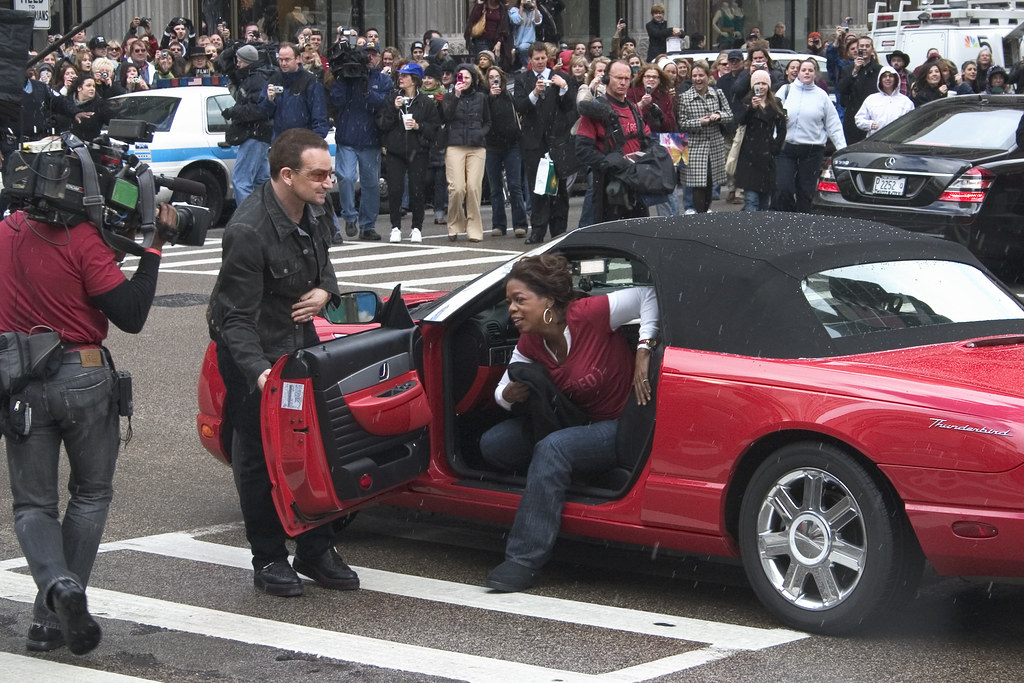Celebrities Consumed: How Bono's (PRODUCT) RED is selling Africa short
Flipping through a recent Sunday New York Times, I caught glimmer of Oprah dragging Bono, RED shopping bags in hand, out of an undisclosed Gap. The accompanying article by Michael Wine asserted that it wasn't just showmanship, but a virtuous persona that gave a handful of celebrities the ability to garner large public support for philanthropy. While Bono's persona of a debt relief-AIDS fighting-rock star may be a bit much, he brings in the dollars and cents. And while that's usually a good thing, it's exactly where this campaign gets muddled.
Wine's article quoted TidBITS.com's Adam Engst calling (PRODUCT) RED a form of “capitalictivism or activicapitalism:” a new breed of convergence between marketing and activism. Engst's fellow staff member, Mark H. Anbinder, described the campaign thusly, “The consumer wins, companies like Apple and Motorola win, and important charities win.” But I would disagree with both Engst and Anbinder. The type of marketing used in PRODUCT (RED) has been around for decades.
Take the most successful attempt at consumer activism: Fairtrade labeling, whose coffee isn't just sold around college campuses and bobo communities, but in supermarkets and mass-retailers worldwide. And Celebrities haven't been sitting on the sidelines either; the
“Capitalictivism or activcapitalism,” as Engst has called it, isn't a new breed of convergence, it just hasn't been done before on a scale like this. Jeff Carlson, another associate from TidBITS.com put it best when he stated, “Of course, you need major brands and major influence (in this case, Apple and Bono) to accomplish this type of deal at such a large level.” And that's exactly what chides me most about PRODUCT (RED): a campaign founded on guiding consumers towards socially conscious goods focuses more on corporate consumption than consumer activism (see this).
As chic as consumer activism may be these days, that new RED iPOD nano or RED Gap t-shirt isn't exactly what the (PRODUCT) RED campaign makes it out to be. Consumers, corporations, charities, and celebrities may all go home and pat themselves on the back, but how much assistance is the campaign actually providing? Unlike Fairtrade coffee, Blackspot shoes, or even American Apparel clothing (with all it's recent criticism), the brand names involved with PRODUCT (RED) aren't founded on socially conscious production. People should not forget that even though the Gap's (PRODUCT) RED line is sweatshop free, the corporation itself, is not.
More deplorable is the campaign's failure to address the issue of illegal Coltan mines in the
Product (RED) may prove to be fabulous at raising money to fight AIDS in



0 Comments:
Post a Comment
<< Home